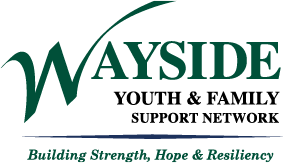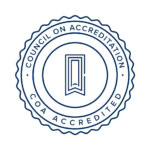Care Coordination
Help Navigating Children’s Mental Health Services
When you discover that your child needs additional therapeutic support, figuring out where and how to get help can be the hardest part. Wayside’s Care Coordination Services can take some of the guesswork and frustration out of juggling multiple providers.
5 family network program with DCF office
Area Lead Agency
Wayside’s Area Lead Agency is a partnership between Wayside and the Massachusetts Department of Children and Families (DCF). Area Lead Agency is the gateway for families involved with DCF to access additional supportive services. Area Lead Agency staff sit within the DCF offices and serve to link families with community based, in-home or out of home interventions that match each family’s unique needs. The Area Lead Agency team facilitates ongoing coordination and collaboration between the families, DCF and providers and monitors for progress towards established goals.
Families must be involved with DCF to receive services through Area Lead Agency.
Community Service Agency in Lowell,
Framingham/Waltham and South County
Intensive Care Coordination (ICC)
ICC is a service that uses the Wraparound Model to identify and coordinate various supports for families raising a child/youth with serious emotional challenges. Participation is voluntary, with an assigned Care Coordinator and Family Partner (FP) for each enrolled youth.
- A Care Coordinator and Family Partner team together with the youth/family to assess their needs and strengths.
- The ICC and FP assist families in developing a crisis plan that works for them.
- The ICC and FP will help the youth/family identify their current team of formal and informal supports that can be part of their Care Plan Team.
- The Care Plan Team will meet regularly to help the youth/family address their needs.
- Working together, the team will develop an Individual Care Plan that can include additional supports, community resources, and services to help address the identified needs from the youth/families goals.
- The ICC collaborates with the youth/ family and team to develop a plan, ensuring continued support beyond ICC/ Wraparound completion.
Contact/Referrals
Framingham/Waltham:
88 Lincoln St, Framingham MA 01701
431 River St, Waltham MA 02453
Email: [email protected]
Referral Line: 508-630-5907
Lowell:
77 East Merrimack Street, Lowell MA 01852
Email: [email protected]
Referral Line: 978-460-8712
South County (Charlton/Milford):
159 Worcester Rd, Charlton MA 01507
10 Asylum St, Milford MA 01757
Email: [email protected]
Referral Line: 774-249-1290
Family Support & Training (Family Partner)
A Family Partner is a parent/caregiver with “lived experience” in raising children with emotional, behavioral, or mental health needs. Leveraging their personal experiences, Family Partners build valuable connections with families and have extensive knowledge of community resources and services.
Working closely with the Care Coordinator, the Family Partner ensures that:
- Families lead the Care Planning/ Wraparound process.
- Family strengths and needs take center stage in all meetings.
- Families understand the diverse forms of support available, determining what suits them best.
- Parents/caregivers are equipped to navigate child-serving systems.
- Caregivers gain insights into medication, diagnoses, and special education services.
- Families have the resources to manage crises effectively.
- Families develop strong self-advocacy skills, fostering confidence and success.
- Access to organizations, services, local support groups, and community programs is facilitated.
- Families join a supportive network, connecting with others who share similar experiences.
Family Support and Training may also be provided as a standalone service independent of the full Care Coordination model.
Wraparound Model Overview:
Engagement Phase (2-3 weeks): Family and facilitator discuss strengths, needs, and expectations. The facilitator contacts team members and prepares for the first meeting.
Planning Phase (1-2 weeks): Team identifies family strengths, needs, and future vision. Objectives, methodologies, and responsibilities are decided, and a crisis management plan is developed.
Plan Implementation (9-18 months): Regular meetings to assess progress, make adjustments, and execute the plan collaboratively.
Transition (Ongoing): As goals near, a transition plan is created for the family to exit the formal wraparound process. Ongoing support mechanisms and a strategy for potential restart are determined.



